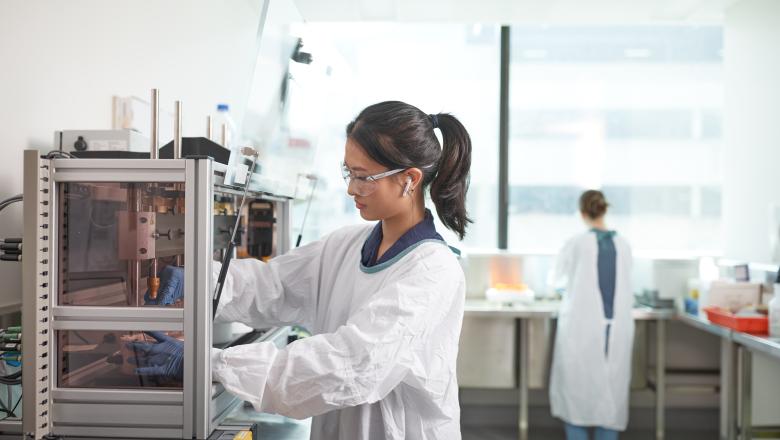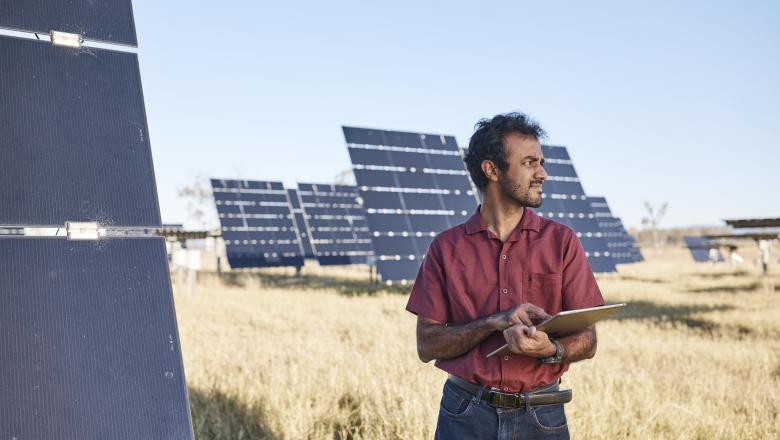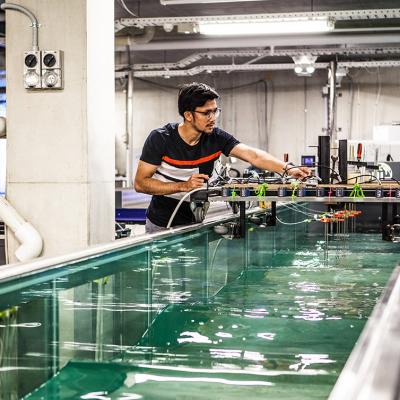A PhD is a big commitment – you've heard it before. It’s a commitment of time, energy and (yep, you guessed it) money. But financial help is available. So, realistically, how much does it cost to do a PhD?
There’s how much a PhD costs, and then there’s how much a PhD costs after you factor in tuition scholarships. It’s also important to note that the cost of the program itself is only one component of how much you will actually spend doing your PhD.
You also need to consider:
- general living expenses and how you will afford these during the 3-4 years you’ll be studying your Doctor of Philosophy
- student services and amenities fees
- travel and accommodation expenses for non-essential workshops or conferences, should you wish to attend.
Scholarships and financial assistance programs can give you a leg up financially. After all, deciding whether or not to do a PhD shouldn’t just be about if you can afford it.
What is the cost of a PhD?
Let’s tackle this systematically and break down each of the main costs associated with a PhD.
How much do PhD programs cost?
There are 2 key factors that affect the cost of your PhD program:
- the field in which you’re studying
- whether you’re studying full time or part time.
UQ annual PhD tuition fees (based on 2025 figures)
| Academic field | Full time | Part time |
|---|---|---|
| Architecture, creative arts, education, health, information technology, management and commerce, mathematical sciences, social and cultural studies | $44,148 | $22,076 |
| Agriculture and environmental studies, dentistry, engineering, human movement, medical studies, natural and physical sciences, pharmacy, psychology, veterinary science | $55,232 | $27,616 |
For the most up-to-date tuition fees, visit the HDR tuition fees page.
Of course, everyone’s PhD journey differs, and students can take anywhere between 3 and 4 years to complete their PhD full time, and 6 to sometimes 8 years to complete it part time. This is why we’ve broken down fees per year, even though they’re actually charged per research quarter at UQ.
With this in mind, we’ve also included the below table, to outline how much an average PhD at UQ would cost, based on our findings that students typically finish their PhD in 3 years and 9 months.

UQ total PhD tuition fees (based on a PhD duration of 3.75 years and 2025 figures)
| Academic field | Total tuition fees |
|---|---|
| Architecture, creative arts, education, health, information technology, management and commerce, mathematical sciences, social and cultural studies | $165,555 |
| Agriculture and environmental studies, dentistry, engineering, human movement, medical studies, natural and physical sciences, pharmacy, psychology, veterinary science | $207,120 |
These figures may look daunting at first, but it’s important to note that most students in Australia don’t undertake a PhD without securing a scholarship that will cover all of their tuition fees.
Student services and amenities fees (SSAF)
Another key cost of doing a PhD is the student services and amenities fee, which is also charged per research quarter. It’s typically the same amount per quarter, but the cost does differ depending on whether you’re studying full time or part time, and if you’re away for a short period on field work (remote).
UQ student services and amenities fee for HDR students
For 2025, the SSAF is a maximum of $365, which will typically be split across the research quarters of the year. Your SSAF payments will be smaller if you're studying your PhD part time or working remotely for a quarter.
You can apply for an SA-HELP loan to defer your SSAF. There’s no limit to the amount you can charge to the loan; however, you will need to start paying it back once you begin earning a salary over the compulsory repayment threshold (this threshold is $54,435 as of 2024-25, but it will increase to $67,000 from 2025-26).
For the most up-to-date SSAF details, visit the student services and amenities page.

What’s the cost of living during a PhD?
This expense isn’t quite as straightforward to calculate as tuition costs and is largely dependent on your lifestyle and where you live. If you’ve been a student for some time already, you probably have pretty strong budgeting game – but here are a few essential expenses that you can break down to better assess your weekly cost of living while doing your PhD:
- rent
- bills (utilities, internet, phone)
- food
- transport (public or fuel)
- recreation.
Explore the cost of living in Brisbane.
You can apply for a living stipend scholarship while you do your PhD to assist with the cost of living while studying. This scholarship provides $36,400 a year (for 3.5 years with the possibility of extension), so that’s about $700 a week to cover all the costs listed above. If that doesn’t quite fund your living expenses, you can look at a range of other scholarships that may provide further financial support.
Find out more about how to secure a living stipend scholarship while you complete your PhD.
What kind of travel and accommodation expenses are associated with a PhD?
Some PhD projects require you to travel outside the area in which you live to conduct research. Any travel that’s essential for your research should be factored in by your supervisor and school or institute at the time of application. However, sometimes there are conferences or workshops that you may wish to attend, that aren’t ‘essential’, but would be beneficial to your professional development. There may be scholarships available to you that include travel and accommodation allowances for these additional, non-essential research-related activities.
Final word
PhDs obviously don’t come cheap. But the upside is that there’s accessible funding and scholarship support for both tuition and living expenses. And unlike undergrad student loans, you don’t have to defer fees and pay them back down the track (except for your SSAF).
At UQ, you’ll apply for tuition and living stipend scholarships offered by UQ at the same time as your PhD application. Scholarships are awarded based on academic performance, evidence of research capability and the quality of your research project – much the same as the criteria for having your PhD proposal approved (if required).
The important thing is to go into your PhD with a realistic outlook and a backup plan when it comes to finances. You want to know that you can carry your research through to completion, and that means having a financial plan, as well as the academic drive, to make this possible.
To find out more about the PhD application process, read our comprehensive guide on how to get a PhD.





